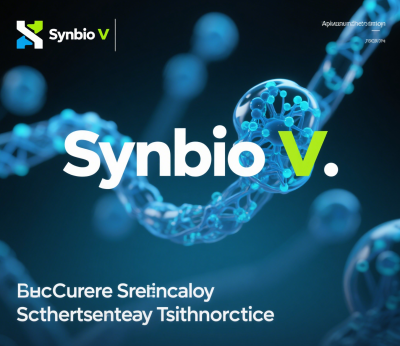
The term “SynBio V” is not a standardized phrase in synthetic biology (SynBio). However, its potential meanings can be inferred through industry practices, technical trends, and naming conventions. Below is a structured analysis based on SynBio’s interdisciplinary principles and frameworks:
I. Potential Abbreviation Expansions
- SynBio-Venter (Venter-Inspired Technologies):
- J. Craig Venter Institute (JCVI) Innovations: Refers to technologies tied to SynBio pioneer J. Craig Venter.
- Examples:
- JCVI-syn 3.0: A minimal synthetic genome organism (473 genes) optimized for industrial use.
- Synthetic Viral Vectors: Engineered tools for gene therapy or vaccine delivery (e.g., synthetic phages).
- Applications: Genome streamlining, artificial life construction, and SynBio tool development.
- SynBio-Version (Technical Iteration):
- Fifth-Generation SynBio: Versioned technology stacks (e.g., V5.0).
- V1-V4: Focused on CRISPR tools and BioBricks standardization.
- V5.0: Integrates AI-driven platforms (e.g., AlphaFold 3) and quantum biosensors.
- Case: Ginkgo Bioworks’ “V-Series” for engineering virus-like particles (VLPs).
- SynBio-Vector (Delivery Systems):
- Advanced Gene Delivery:
- Non-Viral Vectors: Lipid nanoparticles (LNPs) or synthetic exosomes for mRNA vaccines (e.g., COVID-19).
- Phage Engineering: Reprogrammed phages to deliver CRISPR tools to gut microbiota.
- Innovation: Self-replicating RNA or light-controlled vectors for spatiotemporal gene expression.
- SynBio-Virus (Synthetic Virology):
- Engineered Viruses:
- Oncolytic Viruses: Programmed to target cancer cells (e.g., T-VEC for melanoma).
- Biosecure Constructs: Non-replicating viral backbones for vaccines (e.g., SARS-CoV-2 spike carriers).
- Risks & Regulation: Balancing therapeutic potential with biosafety concerns.
II. Industry or Project-Specific Terminology
- Corporate or Platform Codes:
- “V” as “Vault Platform”: DNA-based data storage (e.g., Catalog’s 1g DNA storing 215 PB).
- “Viability-Optimized”: Enhancing microbial resilience (e.g., heat/salt tolerance, phage resistance).
- Academic or Standards Initiatives:
- “V-Chassis”: Standardized microbial hosts (e.g., Pseudomonas putida KT2440) with modular pathways and biocontainment.
- Vienna BioCenter Projects: European “SynBio V” initiatives for cell factories and biomanufacturing standards.
III. Technical Subdomains or Labels
- SynBio-Virtual (Digital Twins):
- AI Simulations: Machine learning (e.g., GNNs) to predict metabolic behaviors and reduce lab iterations.
- Metaverse Labs: Platforms like Labster for training bioengineers.
- SynBio-Vibronic (Quantum-Bio Hybrids):
- Quantum Dots: Real-time monitoring of subcellular processes (e.g., enzymatic reactions).
- Example: Optimizing energy transfer in artificial photosynthesis.
- SynBio-Vernacular (Localized Solutions):
- Climate-Resilient Crops: Drought-tolerant synthetic wheat.
- Custom Microbiomes: Arctic oil-degrading microbial consortia.
IV. Typographical Errors or Conceptual Ambiguity
- Misspellings:
- SynBio-Ψ (Neuro-SynBio): Miswritten Greek letter Ψ, referring to optogenetic control of microbial behavior.
- SynBio-Vanadium: Vanadium-dependent enzymes for bio-batteries or sensors.
- Misinterpretations:
- SynBio-Voyager: Extraterrestrial projects (e.g., cyanobacteria engineered for Mars oxygen production).
- SynBio-Veracity: Debates over “naturalness” of synthetic products (e.g., synthetic vs. natural vanillin).
Summary and Recommendations
“SynBio V” may refer to vector/virus technologies, versioned platforms, or viability optimization, depending on:
- Technical Context: Gene delivery vs. AI-driven iterations.
- Applications: Industrial microbes vs. quantum-enhanced tools.
- Industry Links: Associations with Venter’s work, Catalog’s platforms, or European BioFoundry networks.
For precise clarification, provide technical documentation or project details.
If you are interested in purchasing this domain, please contact: chuanchuan810@gmail.com





